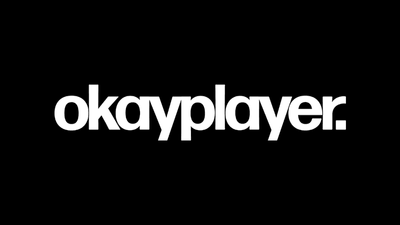D'Angelo Is Already Working On The 'Black Messiah' Follow-Up
It's been six marvelous months since the release of D'Angelo's feverishly anticipated comeback piece Black Messiah. And now that we've had some time to sit with critic proof return, I'd say that only thing left to be desired from the desperado of soul music is, of course, more music. In his second interview back (Chairman Mao got to him first) D and Rolling Stone chat intimately about the many setbacks in the release of BM, citing label issues, drug dependency and J Dilla's tragic passing as obstacles on the path to resurgence. But one glaring insight is perhaps the most promising thing we've heard yet from D or his camp; there's a companion piece in the works and it's poised to be just as heavy as its predecessor. Elsewhere in the interview, D can be found showing love for Kendrick Lamar's To Pimp A Butterfly and assuring us that the timing of their two records were far from coincidence, more an act of musical kismet than anything else. He also shouts Teddy Riley for being one of the first to bridge hip-hop and r&b with his New Jack Swing innovations, debunks the "Untitled" video mishap, shares his stance on race relations in America and a whole lot more. It's a loaded piece and we've got a few of the more compelling excerpts down below for you to peruse through, but make sure you read D'Angelo's full RS interview by hitting the link.
>>>Read D'Angelo's Full Interview (via Rolling Stone)
D on his relationship with Questlove throughout the creation of Black Messiah:
"For the most part, it's just love. There were peaks and valleys — we're brothers, and brothers fight. When Dilla died, it hit all of us. It scared the shit out of me, actually, enough that I really felt my own mortality. I think Ahmir was afraid for me at that point, and sometimes when you feel like that, I guess you don't quite know how to express it, and there was silence. I just had to go through it and get to the other side of it. And thank God I did."
D speaking to what artists can do in the face of systemic racism:
"The first and best thing is to speak about it and sing about it. Aretha Franklin was as important to the civil-rights movement as Malcolm X and Medgar Evers. Artists can choose to take on the tremendous amount of responsibility we have, or choose to ignore it. I can't knock a motherfucker for not singing what I feel like I should sing. But I know it's time for me to say it."
What's next:
"I want to do what Yahweh is leading me to do. Do I know fully what that is? No, I don't. I'm trying to keep myself open, my heart open, to receive and to know what that is. But I do want to put a lot of music out there. I feel like, in a lot of respects, that I'm just getting started. "



